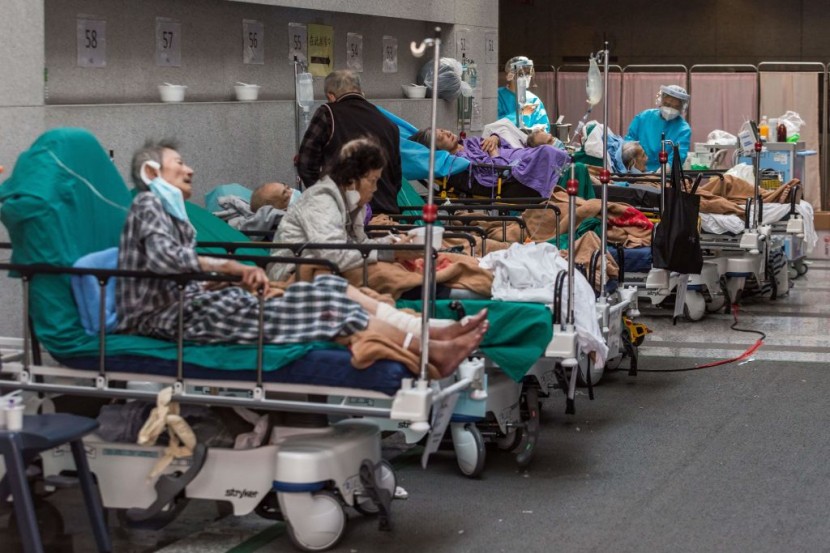
The Chinese government has imposed lockdowns that affect millions of people amid its worst COVID-19 outbreak since the pandemic began two years ago.
The current number of infections has increased faster than the previous outbreaks caused by fewer infectious variants. Daily cases, driven by the more contagious Omicron variant, have surged more than 5,100 on Tuesday. It is the highest number since the early COVID-19 outbreak in Wuhan in 2020.
The figure is alarming for the Chinese government that has been implementing a zero-COVID policy during the pandemic. The cases may seem low compared to previous records, but they put 37 million people in lockdown as of Tuesday.
After an estimated 35,000 cases, the latest round of illnesses will be brought under control in early April, according to a COVID-19 forecasting system established by Lanzhou University in China, Reuters reported.
While the newest outbreak on the mainland was the most serious since the virus was discovered in Wuhan in 2020, the university said that China could manage it by implementing tight restrictions.
Cases have been detected in 21 provinces and municipalities in China, including major cities Shenzen and Shanghai, and its capital Beijing, according to CNN.
Residents in Changchun, Jilin city, Shenzhen and Dongguan are banned from leaving their neighborhoods, except for essential workers and emergency services. Each household is only allowed to send one person to buy groceries every two to three days.
Langfang went a step further in prohibiting all residents from leaving their homes except for emergency reasons. Several of these cities have suspended public transport, indoor dining, closed schools, and are conducting multiple rounds of mass testing for all residents.
Lockdowns' Impact on China's Economy
In affected areas, companies were told to close their offices or have their employees work from home, as long as they are provided with essential supplies and services.
Foxconn, which manufactures iPhones, seized its production in Shenzen on Monday. The local government will determine the date of resumption of its operations, as per BBC.
The company has many production sites in China that adjusted production lines to ease the potential impact of the lockdown. Its factory in Zhenzhou remains open since tight restrictions were not imposed in the city.
Meanwhile, the restrictions also affected carmakers due to the COVID-19 outbreak.
Toyota closed its manufacturing in Changchun, Jilin Province. It did not indicate when it would resume operations. The decision was made to examine the effect of "supplier operations" and the "safety and security of employees" and link parties.
Volkswagen likewise shut down operations in Changchun, citing "affected" production of Volkswagen and Audi vehicles and components. However, the company targets to reopen on Thursday.
Will Zero Tolerance Policy End Soon?
When more infectious variants Delta and Omicron, emerged in 2021, many countries relaxed restrictions and decided to live with the virus. Though, China is now experiencing a strong wave.
Though some Chinese authorities and experts have suggested that the country may abandon the plan, if current rhetoric about reducing cases to zero is any indicator, that won't happen anytime soon.
Related Article: Cybersecurity Alert: Google Sends Warning to High-Profile Gmail Users on Potential Phishing Attack by Chinese Hackers








